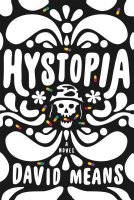
In an alternative version of American history, JFK is in his third term as President, Michigan is basically one huge fiery riot, and the government is subjecting soldiers returning from Vietnam to experimental psychological treatment. Reenactments of their traumas are resulting in a loss of memory of any of the traumatic events; for some, who went to war with childhood friends, this includes large gaps in their memories over the course of a lifetime. Meanwhile, one failed experiment, known as Rake, has embarked on a killing spree, dragging along a psychologically damaged young woman, Meg, whose boyfriend was killed in Vietnam.
If that sounds complicated, the actual plot involves another overlay of fiction: the “real” world of the novel is an alternative history, in which the “novelist”, who subsequently commits suicide, invents yet another alternative world; in that world, his sister Meg is still alive and capable of rescue. The framework of the novel-within-a-novel includes statements by those who knew the siblings, compounding the effect created by the shifting versions of novelistic truth. Meanwhile, the memory loss and forced drugging of the survivors evokes the surreal experience of a generation of soldiers that returned from war to find a new world had created itself in their absence.
Last year gave us The Sympathizer, an incredibly important Vietnam War book; Hystopia is possibly no less important, though from a completely different perspective. While some of its techniques may be a little obvious – the layering of historical narrative, for instance, and retrospective truth – it’s sufficiently original to earn forgiveness, and isn’t afraid to ask hard questions, the most significant of which is: what happens when an entire nation consciously chooses to forget its own trauma?